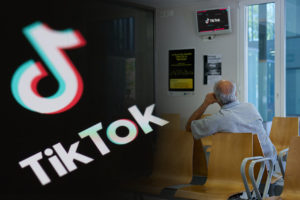“If humanity can put our economies on hold as a safeguard from a global threat like COVID-19, why haven’t we been able to take similar measures to confront a global killer like climate change?” – The Asia Foundation.
It is 2020. This means we only have 10 years to create a better world in line with the 2030 Agenda. While it sounds like we still have plenty of time, we are way off the mark in achieving the 17 Sustainable Development Goals (SDGs). Recent reports have shown that progress is either slow or has regressed. With a widening wealth gap for 70% of the global population, this puts a significant distance between now and realizing Goal 10 of the SDGs. To add on, Asia’s wealth gap is among the largest in the world.
In Malaysia, “relative poverty” – defined by the study as earning less than 60% of median income – has increased by more than half to three million households from 1995. Thus, the bottom 40% of Malaysia’s 7.5 million households are deemed relatively poor. It is a problem that can no longer be ignored. And with the COVID-19 crisis (now the greatest economic calamity since the Great Depression) throwing the world into chaos, resulting in a spike in unemployment across the world, heavily impacting low-skilled workers, and leaving the poor further disadvantaged, it would force the gap open even wider.
Fortunately, the Malaysian government was quick to take immediate action in jumpstarting the economy and preventing the growing economic disparities. In June, Prime Minister Muhyiddin Yassin announced a US$8.2 billion “short-term economic recovery plan” focused on curbing unemployment and spurring investment after COVID-19 forced the country into a two-month lockdown. This includes PENJANA, a Malaysia Digital Economy Corporation (MDEC) initiative focused on enabling digital transitions and transformations, and reskilling and upskilling of Malaysians to enhance employability (a nod to Goal 8 of the SDGs). The plan is on top of a handful of other economic stimulus packages worth over US$60 billion combined, equivalent to a staggering 17% of Malaysia’s gross domestic product (GDP).
That having said, it is not all doom and gloom in the after-effects of the global COVID-19 pandemic. Amid the wreckage of COVID-19, there are some positives. The lockdowns have slowed climate change: cutting fossil fuel use, air pollution, and greenhouse gas emissions. Globally, air travel decreased by around 40% at the beginning of the pandemic, preventing 344 tons of carbon from being emitted. In Kuala Lumpur, the Movement Control Order (MCO) led to an unexpected boost for the environment, with a recorded land surface temperature (LST) drop of more than 10°C as people were forced to stay home and restrict the use of vehicles.
However, the fear is that a looming wave of “revenge travel”, when people try to make up for lost time and disrupted plans to “celebrate” the return to normalcy, will swiftly throw our path to achieving Goal 13 of the SDGs off course again.
With interstate travel now allowed in Malaysia, high occupancy was observed over the past few weekends at well-known tourist destinations such as Melaka, Penang, Port Dickson, and Pulau Redang. Airbnb’s internal booking data as of 29 June 2020 also showed a 190% increase month over month of overall bookings by guests, 93% of which were for domestic destinations. Although domestic tourism is a key first step in tourism and economic recovery, travellers must focus on sustainable travel in order to help the planet and support local businesses while satisfying their wanderlust. Otherwise, it could be an environmental disaster waiting to happen.
Just like how, in this current climate, you would put on a mask to save someone else’s life, change your environmental behaviour today and reap the benefits later. We can retain the COVID-19-era benefits in a post-pandemic world but we need to be vigilant. We need to start now.






